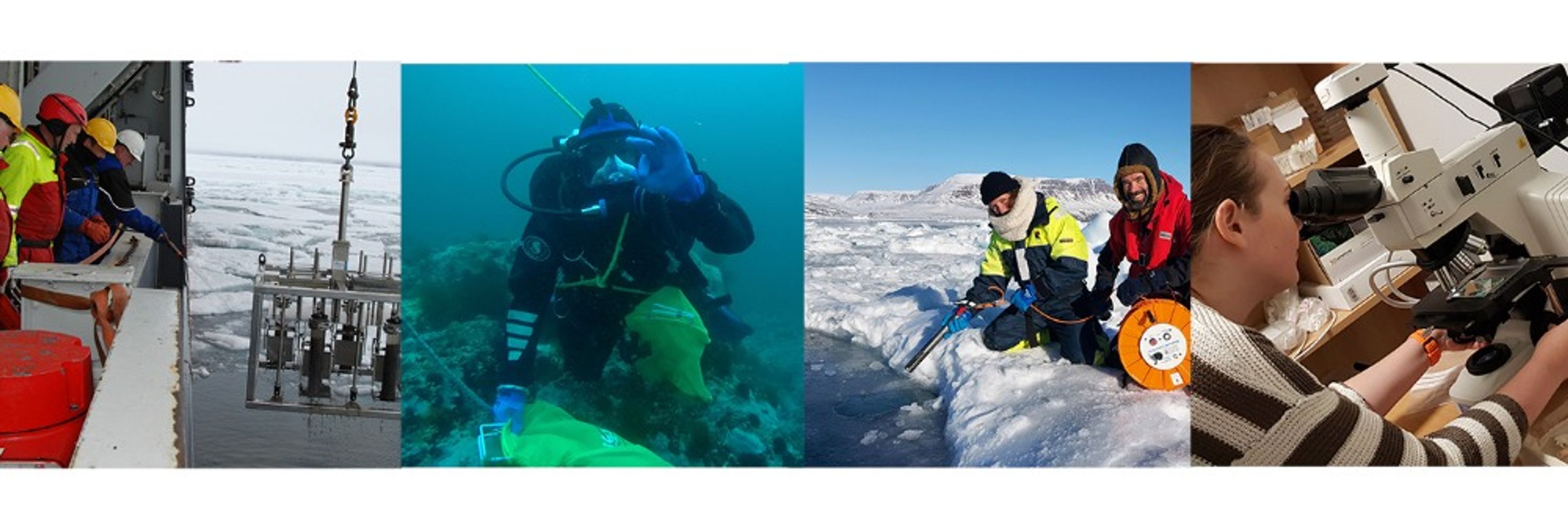
Bjerknes Center for Climate Research (BCCR)
@bjerknes.uib.no
Understanding climate for the benefit of society. BCCR is a collaboration on climate research between the University of Bergen, NORCE, The Norwegian Institute of Marine Research and Nansen Environmental and Remote Sensing Center.
Even though there are uncertainties and ongoing scientific discussions, the panel was clear on one point: our human emissions of fossil fuels are the key factor in preventing potential dangers - regardless of the uncertainties around the consequences.
October 17, 2025 at 11:27 AM
Even though there are uncertainties and ongoing scientific discussions, the panel was clear on one point: our human emissions of fossil fuels are the key factor in preventing potential dangers - regardless of the uncertainties around the consequences.
Professor @rahmstorf.bsky.social from @pik-potsdam.bsky.social, Dr. Audrey Morley from @universityofgalway.bsky.social and Dr. @mariusarthun.bsky.social from Bjerknes Centre.
October 17, 2025 at 11:26 AM
Professor @rahmstorf.bsky.social from @pik-potsdam.bsky.social, Dr. Audrey Morley from @universityofgalway.bsky.social and Dr. @mariusarthun.bsky.social from Bjerknes Centre.
On the stage: Kikki Kleiven, Director at the BCCR, Professor Hans Otto Pörtner from the Alfred Wegener institute @awi.de,
Hildigunnur Thorsteinsson, Director General Icelandic Met Office 👇
Hildigunnur Thorsteinsson, Director General Icelandic Met Office 👇
October 17, 2025 at 11:24 AM
On the stage: Kikki Kleiven, Director at the BCCR, Professor Hans Otto Pörtner from the Alfred Wegener institute @awi.de,
Hildigunnur Thorsteinsson, Director General Icelandic Met Office 👇
Hildigunnur Thorsteinsson, Director General Icelandic Met Office 👇
How will a sudden change in the function of the ocean circulations impact Iceland, Europe, and the world?
On the stage: Kikki Kleiven, Director at the BCCR, Professor Hans Otto Pörtner from the @awi.de Alfred Wegener Institute, Hildigunnur Thorsteinsson, Director General Icelandic Met Office 👇
On the stage: Kikki Kleiven, Director at the BCCR, Professor Hans Otto Pörtner from the @awi.de Alfred Wegener Institute, Hildigunnur Thorsteinsson, Director General Icelandic Met Office 👇
October 16, 2025 at 1:11 PM
How will a sudden change in the function of the ocean circulations impact Iceland, Europe, and the world?
On the stage: Kikki Kleiven, Director at the BCCR, Professor Hans Otto Pörtner from the @awi.de Alfred Wegener Institute, Hildigunnur Thorsteinsson, Director General Icelandic Met Office 👇
On the stage: Kikki Kleiven, Director at the BCCR, Professor Hans Otto Pörtner from the @awi.de Alfred Wegener Institute, Hildigunnur Thorsteinsson, Director General Icelandic Met Office 👇
Read the full report here: global-tipping-points.org/resources-gtp/
@exeter.ac.uk , @wwf.org.uk , @gsiexeter.bsky.social ,
@pik-potsdam.bsky.social , @wwfbrasil.bsky.social
#GTPR2025 #TippingPoints #PositiveTippingPoints #COP30
#MutiraoCOP30
@exeter.ac.uk , @wwf.org.uk , @gsiexeter.bsky.social ,
@pik-potsdam.bsky.social , @wwfbrasil.bsky.social
#GTPR2025 #TippingPoints #PositiveTippingPoints #COP30
#MutiraoCOP30

Resources - Global Tipping Points
Tipping Points Briefing Papers Download the Tipping Points Policy Brief here. Download A positive tipping cascade in power, transport and heating Download the study here. Download something here Plane...
global-tipping-points.org
October 13, 2025 at 9:47 AM
We wish Wanyee the best of luck!
Find her PhD. press release here (in Norwegian)
bjerknes.uib.no/aktuelt/unde...
@wanyeewong.bsky.social
Find her PhD. press release here (in Norwegian)
bjerknes.uib.no/aktuelt/unde...
@wanyeewong.bsky.social

October 7, 2025 at 9:50 AM
We wish Wanyee the best of luck!
Find her PhD. press release here (in Norwegian)
bjerknes.uib.no/aktuelt/unde...
@wanyeewong.bsky.social
Find her PhD. press release here (in Norwegian)
bjerknes.uib.no/aktuelt/unde...
@wanyeewong.bsky.social
Key takeaway: Sea level rise isn't just about coastal flooding. It's a global climate disruptor affecting inland regions too.
Both coastal AND inland countries face new threats from rising seas.
📖 www.nature.com/articles/s41... (4/4)
Both coastal AND inland countries face new threats from rising seas.
📖 www.nature.com/articles/s41... (4/4)

Intensification of extreme cold events in East Asia in response to global mean sea-level rise - Nature Communications
This study uses climate model experiments and shows that global mean sea-level rise can reshape atmospheric circulation and intensify winter cold extremes in East Asia, threatening not only coastal but also inland regions.
www.nature.com
October 7, 2025 at 7:53 AM
Key takeaway: Sea level rise isn't just about coastal flooding. It's a global climate disruptor affecting inland regions too.
Both coastal AND inland countries face new threats from rising seas.
📖 www.nature.com/articles/s41... (4/4)
Both coastal AND inland countries face new threats from rising seas.
📖 www.nature.com/articles/s41... (4/4)
General sea level has risen by ~0.2 m over the past century and is projected to rise further by 0.38 m (0.77 m) by 2100.
The relationship between the response of extreme cold days and sea-level rise is nonlinear. Significant increases in cold extremes appear once sea level rise exceed ~0.6m. (3/4)
The relationship between the response of extreme cold days and sea-level rise is nonlinear. Significant increases in cold extremes appear once sea level rise exceed ~0.6m. (3/4)
October 7, 2025 at 7:53 AM
General sea level has risen by ~0.2 m over the past century and is projected to rise further by 0.38 m (0.77 m) by 2100.
The relationship between the response of extreme cold days and sea-level rise is nonlinear. Significant increases in cold extremes appear once sea level rise exceed ~0.6m. (3/4)
The relationship between the response of extreme cold days and sea-level rise is nonlinear. Significant increases in cold extremes appear once sea level rise exceed ~0.6m. (3/4)
The mechanism: Sea level rise → North Pacific warming → atmospheric Rossby waves → weakened westerlies → more blocking events over Eurasia → Arctic cold air floods into East Asia.
It's a cascade effect linking oceans to atmospheric circulation to extreme weather. (2/4)
It's a cascade effect linking oceans to atmospheric circulation to extreme weather. (2/4)
October 7, 2025 at 7:53 AM
The mechanism: Sea level rise → North Pacific warming → atmospheric Rossby waves → weakened westerlies → more blocking events over Eurasia → Arctic cold air floods into East Asia.
It's a cascade effect linking oceans to atmospheric circulation to extreme weather. (2/4)
It's a cascade effect linking oceans to atmospheric circulation to extreme weather. (2/4)

